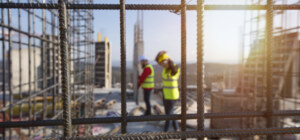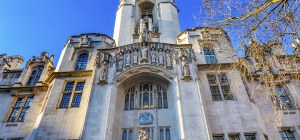792: Transport Committee recommends additional Heathrow safeguards

Angus Walker Partner
Today’s entry reports on the Transport Select Committee’s report on the Airports National Policy Statement.
One of the most important stages towards approval, or ‘designation’ of a new National Policy Statement (NPS) is parliamentary scrutiny, which, in the Commons at least, culminates in a report by the relevant select committee. The House of Lords had their go last week by means of a debate, a report of which can be found here.
The Commons Transport Committee has duly been receiving written evidence and holding oral evidence sessions, and this morning published the report of its recommendations. The report can be found here.
I’m not sure I agree with the statement at the start that:
‘votes to approve the NPS in both Houses of Parliament in effect give outline planning permission for construction of Northwest Runway and associated developments at Heathrow Airport’
(The absence of an article is also troubling). An NPS is not outline planning permission, it is merely policy approval. Some NPSs are location-specific, recommending where development should take place and this one certainly is, but that is still short of planning permission.
The report says that the committee’s recommendations should be implemented, because otherwise there is ‘a risk of successful legal challenge’, helpfully – for potential challengers – setting out the risks on page 19 (and somewhat surprisingly quoting our book on the subject on page 98).
On air quality (an issue arising from surface transport rather than aircraft), it wants ‘a more stringent interpretation of air quality compliance’ than currently and a stronger condition before a Development Consent Order (DCO) is granted.
On surface transport the committee want southern and western rail access to be committed to, plus a distinction between which transport schemes are to support current operations and which support a third runway. The commitment to no more airport-related traffic should be a condition of granting consent or releasing new capacity.
The committee asks for more on how increased domestic routes will be achieved, given that this is outside Heathrow’s control.
On noise, the committee wants a maximum number to be set of people newly exposed to aircraft noise through expansion, and asks that the night time flight ban is extended from six and a half to seven hours.
On the applicability of the NPS to other airports in the south east, the committee couldn’t reach a consensus about what to do about them, so hasn’t recommended anything; a little disappointing as someone who is acting on two non-Heathrow south-eastern airport DCOs.
The Government must now consider the recommendations of the committee, plus the response to the public consultation on the draft NPS, and publish a final version. Given the amount of additional work the Transport Committee has asked to be carried out, it is unlikely that the revised draft will both comply with the committee’s recommendations and be designated by the end of June as promised. Here is a rough shopping list of what the committee has asked for beyond changes to the wording of the NPS and work to be carried out later:
- more detail on environmental, health and community impacts;
- updated air quality population impact estimates;
- updated surface access modelling and costs;
- more clarity on what is to happen to the M25;
- evidence that the runway is affordable and deliverable; and
- updated noise modelling
I have heard on the grapevine that even before this report came out the government was only aiming to lay the final version before parliament by 30 June, not necessarily designating the NPS by then.
That final version must be approved by the House of Commons for it to be designated. This is probably the first NPS for which a positive vote is not a foregone conclusion, as Heathrow expansion is a highly political matter. Even without the politics, the government has the tricky task of balancing time, doing what the committee has asked, and not bogging the expansion DCO down with so many conditions that it is impossible to implement or attract investors.
Once the NPS is designated, there is a six-week legal challenge period, and the chances of one or more legal challenges is about, ooh, 100%. All this fuss over a bit of tarmac.










